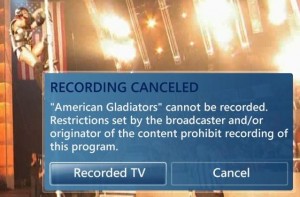From Gamasutra:GameStop to Game Devs: Please Love us
We have all been into a GameStop store and been offered a new release, used, sold at $5 lower than the new price. The company insists this is a tiny percentage of its business and, in reality, happens rarely. People generally hang on to new games for at least six weeks, the execs say.
The problem with the used-games model is that consumers will try to save the $5 and publishers are trying to stop this by including single use DLC codes and, in some extreme cases, including a single use license key which requires online activation and tying to your email address.
The problem is that the used games market is killing revenues for more obscure games. People might buy COD Black Ops and never trade it in because they value the game. They bought it full price and they keep it. But maybe a game like “Resistance” which has an extensive single-player campaign gets traded in (because the multiplayer, compared to COD Black Ops, is quite weak). More people buy this then as a used-game and play it. Who gets this revenue from the second purchase? Not the game developer. It’s a massive percentage of the cover price but all of that money goes into the used-game retailers pockets.
Is it therefore any wonder that game developers and publishers are increasingly moving to a digital download model and bypassing the used-game market with online accounts, online distribution and licenses that are tied to your identity.
Which is a very fair point indeed. And I can see Valve allowing you to trade in your games for pennies on the dollar so you can buy more games. Valve’s store, STEAM, it must be noted, has extremely draconian DRM – orders of magnitude worse than Apple’s App Store. This would get them out of the way of EU legislation on property but it’s unlikely to make anyone happy about the result. And I doubt that Apple or Valve or Blizzard (or even Google) will hand over their decryption keys to GameStop to make it easy for them to be a broker of digital content.
Even the idea of “re-use” of digital content is somewhat ludicrous, especially when you consider the heinous amounts of DRM that would have to be implemented in order to protect the rights of IP holders. What’s to stop the average punter taking their DRM-free copy of a game and giving it to another retailer or even just posting it on the internet for download? The enforced scarcity of plastic disks (and tapes) and their primitive copy protection from the 1980s (anyone remember the colour reference sheets used to unlock games?) has had to be replaced by restrictive DRM in order to just make sure that creators get paid.
On the other hand, games on the App Store and Steam are already really cheap and it makes me wonder whether people are really concerned about the pennies.
I don’t see why anyone should do GameStop (or any second-hand games retailer) any favours. They’re part of the machine that is killing the industry, driving prices up and restricting innovation and creativity in game development. A single copy of a great (but niche) game might be sold once brand new and then sold 2-3 times more in the used-game market. The vast majority of that money goes to the retailer and only a tiny fraction to the developer/publisher. Now, if you were the developer/publisher, what would you want to do to get fair access to your dues? Is it any wonder the big publishers are taking the market away from the used market? Is it any wonder that everything is trending towards online activation (or online distribution)?
Now, if you will excuse me, I must go and play Call of Duty 4:Modern Warfare III or Call of Duty 4: Black Ops II or FIFA 13 or any number of a series of safe sequels.


